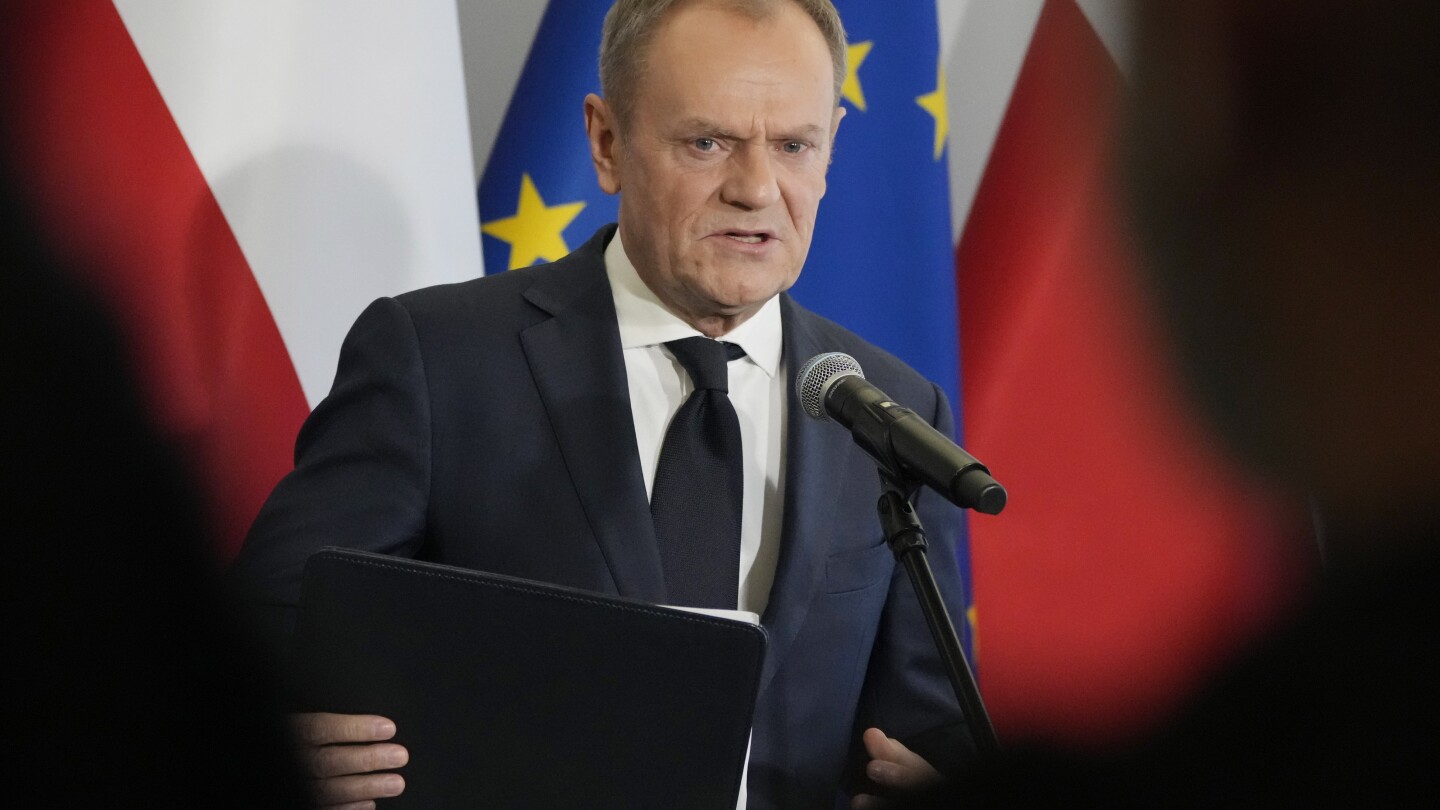WARSAW, Poland (AP) — The national conservatives who have ruled Poland for eight years are expected to finally relinquish power this week to a centrist bloc led by political veteran Donald Tusk.
The transition will come in several steps over three days, starting Monday, nearly two months since Poles turned out in huge numbers to vote for change in a national election. The transition was delayed for weeks by the president, who chose to keep his political allies in office as long as possible.
The change of power in Poland is consequential for the 38 million citizens of the central European nation, where collective anger produced a record-high turnout to replace a government that had been eroding democratic norms.
There is relief for many, including women who saw reproductive rights eroded and LGBTQ+ people who faced a government hate campaign that drove some to leave the country.
The change holds important implications for Ukraine and the EU as well.
Tusk, a past EU leader, is expected to improve Warsaw’s standing in Brussels. His leadership of the EU’s fifth largest member by population will boost centrist, pro-EU forces at a time when euroskeptics, such as Geert Wilders in the Netherlands, are gaining strength.
Poland’s outgoing nationalist government was initially one of Kyiv’s strongest allies after Russia invaded Ukraine last year, but ties have worsened as economic competition from Ukrainian food producers and truckers has angered Poles who say their livelihoods are threatened.
A blockade by Polish truckers at the border with Ukraine counts among the many problems Tusk will have to tackle immediately. The protest has held up some military equipment that charities are importing, and Tusk has accused the outgoing government of Prime Minister Mateusz Morawiecki of mishandling the situation.
The next days will be packed with political steps dictated by the constitution.
First, Morawiecki is required to address the Sejm, the Polish parliament’s lower house, and then face a confidence vote which he will lose, bringing an end to his premiership exactly six years after he assumed the office on Dec. 11, 2017. Simple arithmetic indicates he has no chance to survive the vote. His Law and Justice party won the most seats in the Oct. 15 election but lost its parliamentary majority.
The Sejm is scheduled to elect Tusk later Monday. Tusk must then address lawmakers Tuesday and quickly face a confidence vote himself, which he seems sure to win given that he is backed by a majority in the 460-seat body.
The final act will involve President Andrzej Duda swearing in Tusk and his government. That is expected to happen on Wednesday.
Tusk then plans to fly to Brussels for an EU summit later in the week where discussions critical for Ukraine’s future are expected as the nation fights off the Russian invasion. Hungarian Prime Minister Viktor Orban, Russia’s closest ally in the EU, is demanding that Ukraine’s membership in the European Union and billions of euros in funding meant for the war-torn country be taken off the agenda.
Morawiecki’s government reacted to an economic dispute with Kyiv during the election campaign by banning Ukraine food imports and saying it had stopped sending military aid to Ukraine. Tusk last week, speaking of the truckers’ protest, said he will seek solutions that take into account their financial needs but also the region’s security.
The power transition has already been playing out for weeks in the Sejm, where Szymon Holownia, the leader of a party allied with Tusk, became the speaker weeks ago and has been trying to encourage more dignified behavior in the sometime raucous assembly.
The lively proceedings led by Holownia, a former reality TV showman, have since become very popular, igniting huge curiosity and emotions that have led to a spike in the number of subscribers to the Sejm’s YouTube channel.
The huge public interest has even inspired a movie theater in Warsaw to broadcast the week’s proceedings on its big screens.

